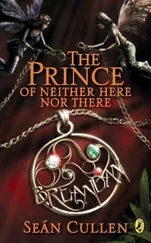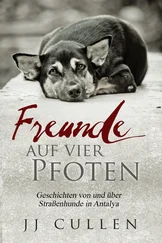____
Dylan’s mother was Jewish. Sue Klebold had been born Sue Yassenoff, part of a prominent Jewish family in Columbus. Her paternal grandfather, Leo Yassenoff, was a philanthropist and a bit of a local tycoon. The city’s Leo Yassenoff Jewish Community Center was established by the foundation he funded. Classmates said Dylan never shared Eric’s fascination with Hitler, Nazis, or Germany, and some suggested it bothered him. Tom was Lutheran, and the family practiced some of each religion. They celebrated Easter and Passover, with a traditional Seder. Most of the year they remained quietly spiritual, without much organized religion.
In the mid-1990s, they took a stab at a traditional church. They joined the parish of St. Philip Lutheran Church; the boys went to services along with their parents. Their pastor, Reverend Don Marxhausen, described them as “hardworking, very intelligent, sixties kind of people. They don’t believe in violence or guns or racism and certainly aren’t anti-Semitic.” They liked Marxhausen, but formal church service just wasn’t a good fit for them. They attended for a brief time and then dropped away.
Sue spent her career in higher education. She began as a tutor, then a lab assistant, and finally worked with disabled students. In 1997, she left a local community college for a position with the Colorado Community College System. She coordinated a program there to help vocational/rehab students get jobs and training.
Tom did reasonably well in the oil business, but better at renovating and renting out apartments. He was great with repairs and remodeling. A hobby became a business. Tom and Sue formed Fountain Real Estate Management to buy and administer the properties. Tom continued consulting to independent oil companies part-time.
The Klebolds were rising financially, but worried about spoiling their kids. Ethics were central in their household, and the boys needed to learn restraint. Tom and Sue settled on appropriate figures to spend on the boys and stuck to them. One Christmas, Dylan wanted an expensive baseball card that would have consumed his entire gift budget. Sue was torn. One tiny present in addition to the card for her boy? Maybe she could spend a little extra. Nope. Austerity was a gift, too, and Dylan got what he’d asked for and no more.
In 1990, as metro Denver encroached into Jeffco, the Klebolds retreated beyond the hogback, the first strip of foothills hundreds of feet high, which from the air looked like the bumps along a hog’s back. The hogback functions like Denver’s coastline—it feels like civilization ends there. Roads are scarce; homes are distant and highly exclusive. Shops and commerce and activity are almost nonexistent. The family moved into a run-down glass and-cedar house on Deer Creek Mesa, inside a panoramic rock formation, a smaller version of the Red Rocks Amphitheatre, a few miles away. Tom gradually brought the house back into stunning shape. Dylan officially lived in the backcountry now—part-time country boy, riding over to the populated side every morning for school in suburbia.
In seventh grade, Dylan faced a frightening transition. He had been sheltered among the brainiacs in CHIPS. Ken Caryl Middle School was five times as big and it didn’t have a gifted program. Tom described Dylan lurching from “cradle to reality.”
24. Hour of Need

Reverend Marxhausen led a congregation of several thousand at St. Philip Lutheran Church. Quite a few attended Columbine. He spent much of the “hostage crisis” at Leawood, searching for students, calming parents. His parish appeared to be spared.
He organized a vigil that first evening, at St. Philip. He distributed communion, a task he found utterly soothing. The gently whispered interplay calmed him like a mantra: The body of Christ… Amen… The body of Christ… Amen… . It was a steady cadence: his softly commanding baritone punctuated by a brief, nearly inaudible response. A fluttering variety of tenors and sopranos colored his symphony, but the rhythm remained the same. As the communion line dwindled, a woman softly broke the spell. “The body of Christ…” he said.
“Klebold.”
What? It startled him at first, but this happened occasionally: a parishioner lost herself in prayer on the slow march up the aisle, and the pastor’s voice startled her out of it.
Reverend Marxhausen tried again: “The body of Christ…”
“Klebold.”
This time he recognized the word—from the TV; he had forgotten his brief association with the family.
He looked up. The woman continued: “Don’t forget them in their hour of need.”
She accepted the host and moved on.
That night, Marxhausen checked the parish rolls. Tom and Sue Klebold and their two boys, Dylan and Byron, had registered five years ago. They had not stayed long, but that did not diminish his responsibility. If they had failed to find a spiritual home, they remained under his care.
He found a family close to Tom and Sue and sent word that he was available.
They called a few days later. “I need your help,” Tom said. That was obvious; his voice was shaking. He needed a funeral for his boy. How embarrassing to ask after a five-year absence, but Tom was out of options.
He also had a requirement. “It has to be confidential,” he said.
Of course, Marxhausen said—to both counts. He talked to Tom and then Sue, asked how they were doing. “They used the word ‘devastated,’” he recalled later. “I didn’t want to ask them any more.”
Tom and Sue received the body on Thursday. The service was conducted on Saturday. It was done quietly, with just fifteen people, including friends, family, and clergy. Marxhausen brought another minister and both their wives. Dylan lay in an open casket, his face restored, no sign of the gaping head wound. He looked peaceful. His face was surrounded by a circle of Beanie Babies and other stuffed toys.
When Marxhausen arrived, Tom was in denial, Sue was falling apart. She crumpled into the pastor’s arms. Marxhausen engulfed her. Her frail body quaked; she sobbed there for perhaps a minute and a half—“which is a long time,” he said.
Tom just couldn’t see his little boy as that killer. “This was not my son” is how Marxhausen paraphrased his statements the next day. “What you see in the papers was not my son.”
The other mourners arrived, and the awkwardness only increased. A liturgy wasn’t going to help them. Marxhausen felt a terrible need to scrap his service and let them speak. “Do you mind if we just talk for a while?” he suggested. “And then we’ll worship.”
He shut the door and asked who wanted to begin.
“There was this one couple, they just poured out their hearts,” he recalled. “Their son used to play with Dylan when the boys were little. They loved Dylan.”
Where did the guns come from? Tom asked. They had never had more than a BB gun. Where did the violence come from? What was this Nazi stuff?
And the anti-Semitism? Sue said. She’s Jewish, Dylan was half Jewish, what kind of sense did this make?
They were such good parents, a friend said. Dylan was a great kid. “He was like our son!”
They went around and around—fewer than a dozen of them, but for forty-five minutes they spilled out anguish and confusion, and love for the awkward kid who’d had occasional outbursts.
Dylan’s brother, Byron, mostly listened. He sat quietly between Tom and Sue and finally spoke up near the end. “I want to thank you all for being here today, for my parents and myself,” he said. “I love my brother.”
Then Marxhausen read from Scripture and offered some muted encouragement. “True enough, there will be those who do not know grace and will want to give only judgment,” he said. But help would come in time and in surprising ways. “I have no idea how you are going to heal. But God still wants to reach out to you and will always reach out to you in some way.”
Читать дальше








